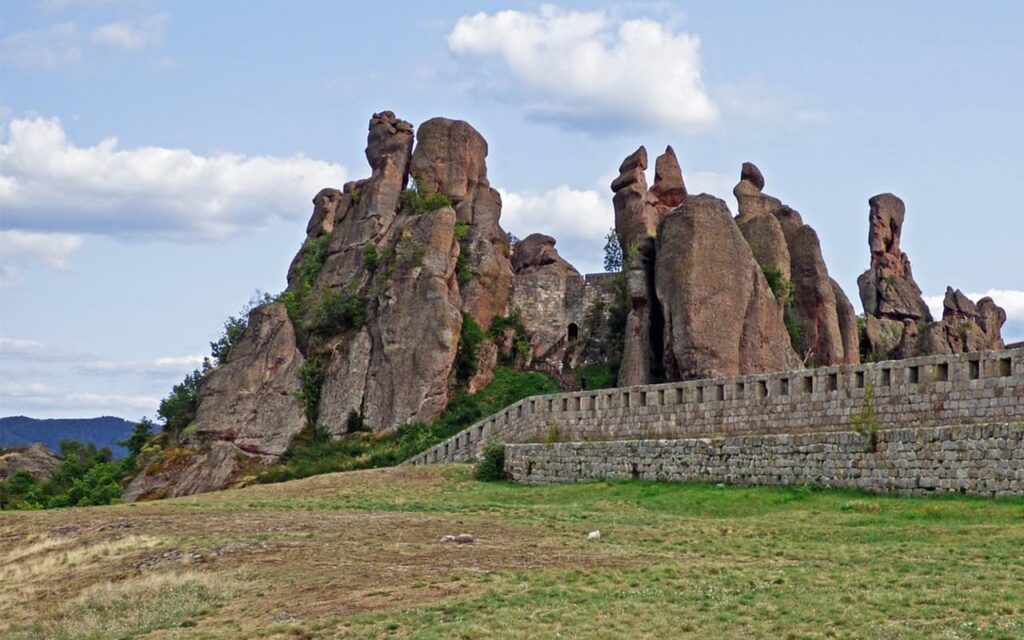The country is located in Southeastern Europe on the Balkan Peninsula. To the east, it is bordered by the Black Sea: the length of the sea coast here is 400 kilometers. Bulgaria’s southern neighbors are Greece and Turkey; to the west, the country borders Serbia and North Macedonia, and to the north, Romania.
Bulgaria has always been a crossroads from Europe to the Middle East and Asia, and therefore in all historical periods it has been of interest to neighboring peoples who have left traces of their stay on Bulgarian soil. There are tombs of Thracian kings, theaters of the ancient Greeks, ancient Roman stadiums, medieval castles of the kings of the First and Second Bulgarian kingdoms, Ottoman mosques, etc. There are nine sites included in the UNESCO World Heritage List on the territory of present-day Bulgaria.
The natural landscape of Bulgaria is very diverse. For example, the Balkan Mountains stretch across the country: from the farthest northwestern regions to the Black Sea coast. Mountains and river valleys occupy almost all of the western and southern regions of the country. The highest peak in Bulgaria and all of Eastern Europe is Mount Musala (2,925 meters above sea level) on the Rila Range. In the south of the country are the lowlands and low mountains of Strandzha and Sakar, in the north the territory is low-lying, and in the east is the Black Sea coast.
From a tourist point of view, modern Bulgaria is a diverse country that will appeal to lovers of several vacation destinations. In our Bulgaria travel guide we will tell you about the best beach and ski resorts, the main attractions, and the most delicious local cuisine. The time spent in Bulgaria will surely be remembered by its guests, because, according to the locals, their country is a paradise, as an ancient Bulgarian legend tells us: “When God gave the nations of the world their lands, he forgot about the Bulgarians. There was no free land left for them. And then he gave the Bulgarians a piece of paradise.”
Climate and weather in Bulgaria
Bulgaria is located in two climatic zones – continental and Mediterranean, which largely determines the weather on its territory.
Most of Bulgaria has a continental climate, with hot and dry or moderately humid summers and moderately cold winters with rare snowfall. It is due to the presence of mountains that create a sharp contrast in weather over relatively short distances.
Since the Black Sea is relatively small, it is not the main factor affecting the weather in the country and forms weather conditions only on the coast. Thus, Bulgarian seaside resorts usually have warm summers, when the air temperature averages +28°C, but in some years it reaches +40°C. The winters are mild, with temperatures rarely falling below -2 °C.
In the mountains, the climate is more harsh, with summer temperatures ranging from +18°C to +21°C and winter temperatures of -6°C to -10°C, with very heavy snowfall and sometimes temperatures dropping to -30°C.
Southwestern Bulgaria has a subtropical climate with mild winters, during which there is more rain than snowfall, and hot and humid summers.
Spring in Bulgaria is often wet, but in March, in some snowy years, tourists can even find the ski season at popular ski resorts. The best type of recreation in spring is at balneological resorts, of which there are several hundred in the country, they are famous for their healing mineral waters – there are about five hundred sources of such waters in the country. The beach tourism season opens in May. The water in the sea is still quite cool, but the air temperature is already rising to +22 °C.
There are almost never big waves on the Bulgarian coast. At this time, many families with children vacation on the country’s beaches.
September in Bulgaria is the velvet season, and it is also a very pleasant time for long walks by the sea, excursions, hiking, and visiting various festivals.
In winter, Bulgaria has a very good ski vacation: there is a lot of snow in the winter resorts, the ski season lasts until the end of February – beginning of March. The air temperature rarely drops below -20 °C, and on average it stays within the range of -10 °C … -15 °C.
